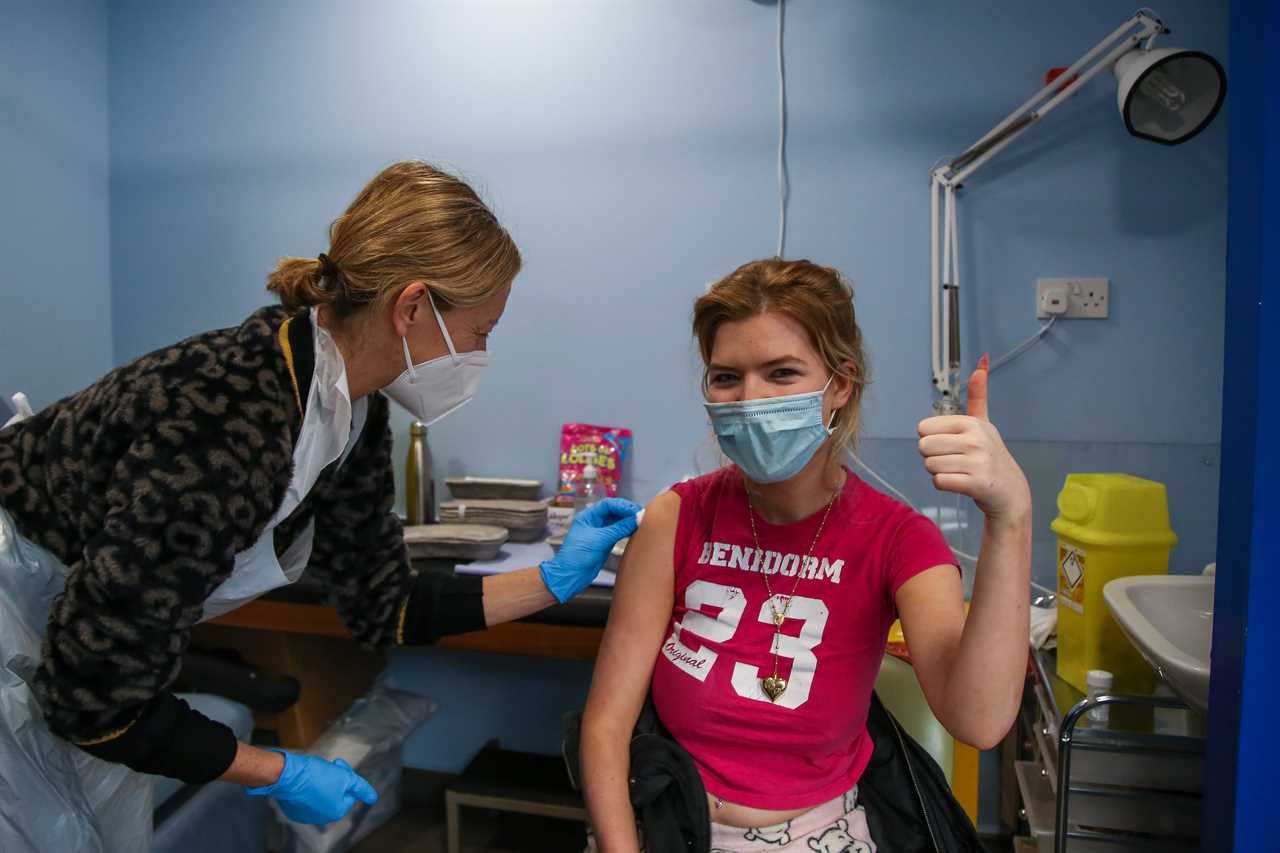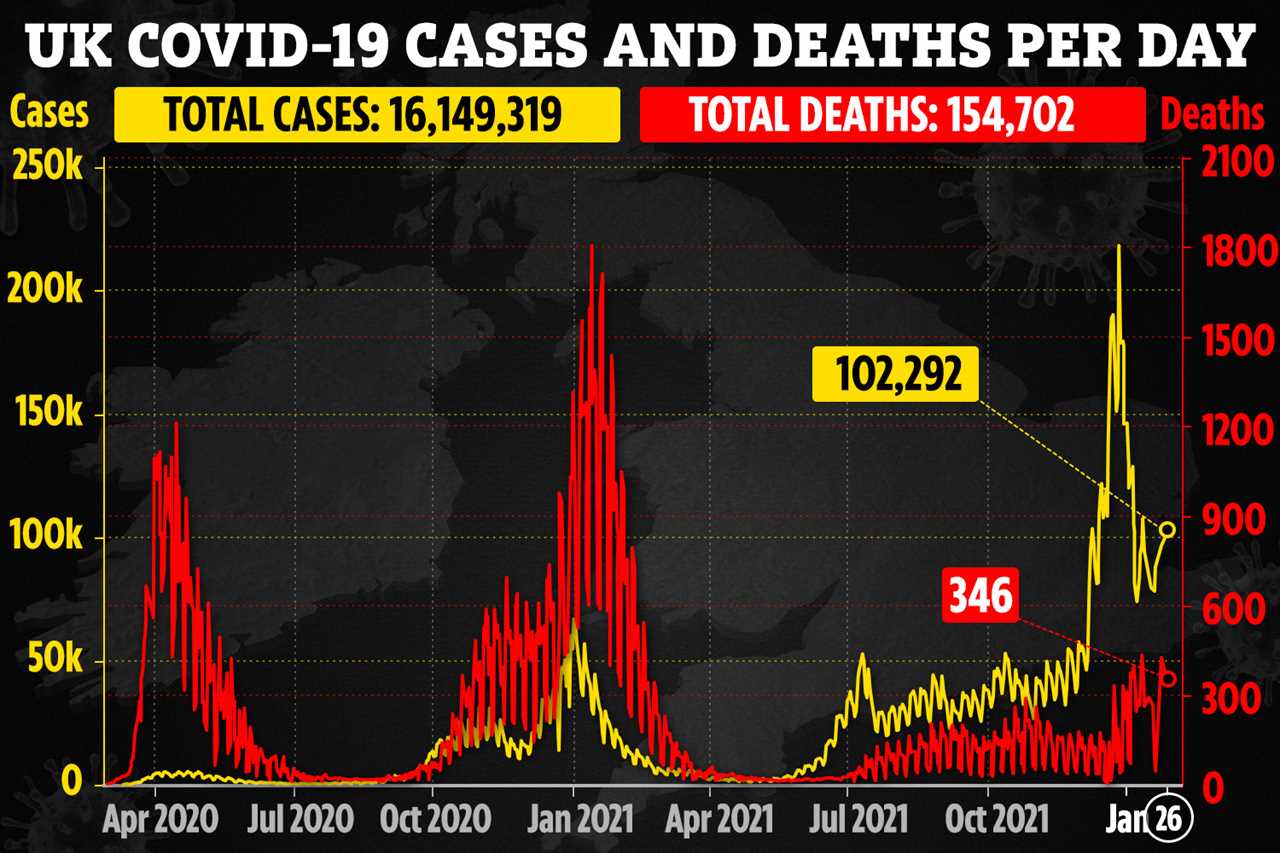BOOSTER jabs slash the risk of dying with Omicron by 95 per cent, official data has revealed.
The encouraging news comes as many Plan B restrictions have been dropped today.

The UK Health Security Agency analysis looked at the impact of the third shot on mortality for over-50s.
A fresh report today said: “Vaccine effectiveness against mortality with the Omicron variant has been estimated for those aged 50 years and older by combining the risk of becoming a symptomatic case with the risk of death among symptomatic cases in vaccinated (all vaccines combined) compared to unvaccinated individuals.
“At 25+ weeks following the second dose, vaccine effectiveness was around 60 per cent while at two or more weeks following a booster vaccine effectiveness was 95 per cent against mortality.”
Previous data showed people are far less likely to be infected with Omicron once they have a booster.
And if they do catch the variant, it will be a milder version of the Covid we previously knew, thanks to the jabs.
The latest data also showed boosters work against a new sub-variant of Omicron, BA.2, starting to spread in the UK.
It found: “Vaccine effectiveness against symptomatic disease was similar for BA.1 and BA.2 sub-lineages of Omicron.”
Three weeks after a booster shot, effectiveness against symptomatic disease rose to 63 per cent for BA.1 (original Omicron) and 70 per cent for BA.2.
When Omicron first emerged earlier last month, scientists warned it may evade the vaccines.
Data revealed two jabs do work to prevent serious illness from the mutant strain.
But, getting a booster shot, or a third dose, “turbocharges immunity” and is what is needed to successfully beat the variant, a study found.
Research from UKHSA found a booster is 92 per cent effective in stopping hospitalisation two weeks after it is administered.
The latest data is also very encouraging for pregnant women unsure if they should get the jabs.
It showed the risk of stillbirth, low birthweight and premature birth remains very similar to the unvaccinated – but you have the protection of a vaccine should you fall ill.
Dr Gayatri Amirthalingam, Consultant Epidemiologist at the UK Health Security Agency, said: “There is growing evidence indicating that if you are pregnant, you are at increased risk of serious illness from Covid-19, especially in late pregnancy.
“We know that the Covid-19 vaccines used in the UK are highly effective at protecting against hospitalisation and our ongoing monitoring of the vaccine programme continues to provide reassuring evidence on the safety of Covid-19 vaccines in pregnant women.

Follow our Covid live blog for all the latest updates
“I would urge all pregnant women to come forward and get their vaccine without delay. This is the best way to protect you and your baby.”
Earlier this month it emerged four out of five patients in hospital with Omicron at the peak of cases had not had a booster jab to protect against Covid.
Health and Social Care Secretary Sajid Javid said today: “The tireless efforts of NHS and care staff, and the army of volunteers, as well as the phenomenal response of the British public means over 37million people have been boosted. I want to thank everyone who has come forward to Get Boosted Now.
“As we learn to live with Covid we need to be clear eyed that this virus is not going away so if you haven’t already – please come forward for your first, second or booster jab.”
It comes as Plan B restrictions are shelved, after PM Boris Johnson told the Commons last week cases and hospitalisations are falling, and “our scientists believe it is likely the Omicron wave has now peaked nationally”.
He declared: “Because of the extraordinary booster campaign, together with the way the public have responded to the Plan B measures, we can return to Plan A in England and allow Plan B regulations to expire.”
Today NHS National Medical Director Professor Stephen Powis said: “The public can help us by coming forward for their lifesaving Covid vaccines, and as has been the case throughout the pandemic, if you have a health problem, please go to 111 online and call 999 when it is a life threatening condition – the NHS is here for you”.







